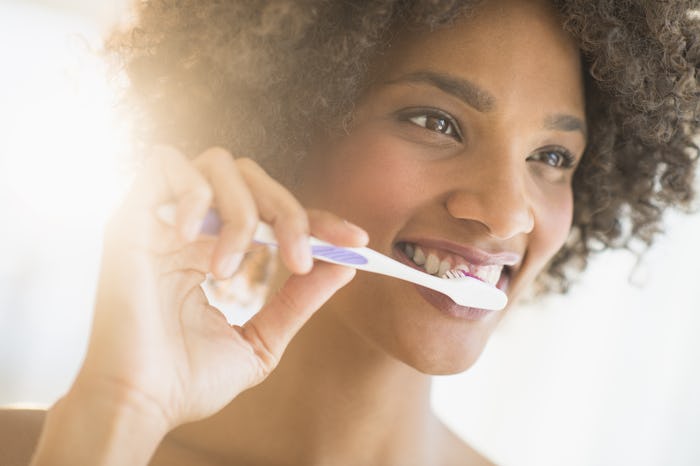Life

10 Surprising Oral Hygiene Tips You Need To Know
No one loves a dry mouth or bad breath. And although brushing your teeth is something you've been doing for years now, there are still oral hygiene tips that no one ever taught you that could still benefit your overall health big time.
You shouldn't take a relaxed approach when it comes to dental care since many unwanted dental concerns and problems can arise when you do so. According to Colgate, there are simple steps that you can take to decrease the risk of developing tooth decay, gum disease, and other dental problems, in between regular visits to the dentist.
But even if you increase the uptake of cleaning your teeth, it's still important to regularly visit your dentist, especially if you have preexisting dental problems. To make your life easier, schedule your oral exams as you stay on top of your kid's dentist appointments.
Incorporating these oral hygiene tips into your daily morning and nighttime routine can help you to see amazing changes when it comes to your teeth, gums, and breath. Hey, maybe your dentist will even finally stop nagging you about flossing once they see all of the other great improvements you've made when it comes to oral hygiene.
1Brush Your Tongue
According to Know Your Teeth, it's just as important to brush your tongue to remove bacteria and freshen your breath as it is to brush your teeth.
2Stop Using Mouthwash Directly After Brushing
According to National Smile Month, you rinse away fluoride from your toothpaste when you use mouthwash right after brushing your teeth. To avoid this, opt to use mouthwash after lunch rather than directly after your morning brush.
3Properly Store Your Toothbrush
According to Mayo Clinic, there are simple steps that keep your toothbrush clean. The site noted that you should rinse your toothbrush after brushing, store it in an upright position to air-dry, and keep it away from closed containers to prevent growth of bacteria, mold, and yeast.
4Switch To A Soft-Bristled Toothbrush
According to Dr. Chris Nhan, a California dentist, toothbrushes with hard bristles can damage your gums and expose tooth root surfaces if they're not used properly. When used properly, hard bristles can efficiently remove plague and tartar.
5Watch Your Calcium Intake
According to Dr. Ernest Greenwald, from a Richmond Hill family dentistry, your calcium intake is just as important for your teeth as it is for your bones. Have a glass of milk in the morning or incorporate cheese into your lunch to increase your calcium intake.
6Limit The Amount Of Times You Brush
According to Complete Dental Health, you should brush your teeth twice daily — once in the morning and again at night. The site further noted that more is not better, since excessive brushing can weaken your teeth's enamel.
7Visit Your Dentist Annually
According to the Office of Women's Health, U.S. Department of Health and Human Services, you should have an oral exam once or twice a year. If problems or concerns arise, don't be afraid to contact your dentist to book additional appointments.
8Avoid Brushing Your Teeth Too Hard
According to Dr. Cindy Flanagan, a dentist for more than 25 years, you shouldn't forcefully brush your teeth. She further recommended to use small, circular strokes to cover each tooth on all sides when brushing.
9Know When It's Time To Replace Your Toothbrush
According to Spire & Co, you should replace your toothbrush every two to three months, and even after you get sick. This will help to prevent germs from spreading in your mouth.
10Spend The Right Amount Of Time Brushing
According to The Health Site, you should brush each region of your mouth for at least 30 seconds. The site further noted that you should not brush horizontally along the gum line, since doing so can cause damage to it.